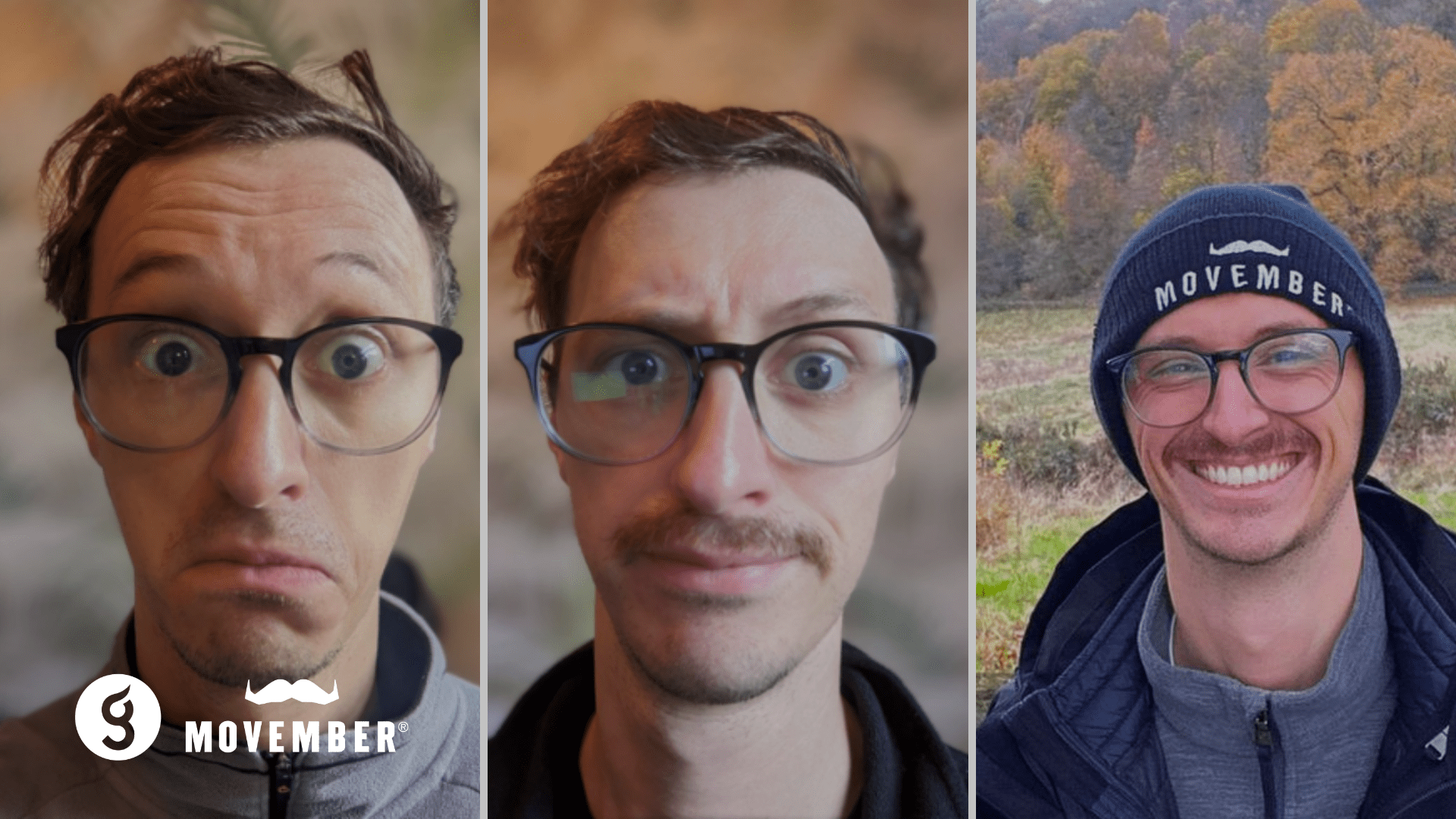
Ryan Cookson: My cancer story
*Trigger warning, themes of cancer and deaths related to cancer*
Grayce’s Talent Attraction Manager, Ryan Cookson shares his story after being diagnosed with testicular cancer 10 years ago.
Ten years ago in October 2012, I was diagnosed with testicular cancer.
As a twenty-one-year-old at the time, I mostly kept this to myself. I was fairly open about it with close friends and family, but it’s never something I imagined opening up about in a wider environment. But, that was ten years ago, and over those years I’ve come to realise that I have a responsibility to talk about what happened to me, to show that it’s nothing to be ashamed about. If my talking about it helps someone go and get a check-up or do a self-examination once a month, then it’s potentially one more life saved.
Let’s look at the stats around testicular cancer. It is relatively rare, accounting for just 1% of all cancers that occur in men. Although rare, it is the most common type of cancer to affect men between the ages of 15 and 49. Around 2,300 men are diagnosed with testicular cancer each year in the UK, but the survival rate is excellent; greater than 90%.
For this reason, amongst others, I count myself incredibly lucky. My cancer got caught early, hadn’t spread, I didn’t have radiotherapy or chemotherapy, and not too long after my surgery I was told that the cancer markers in my blood had decreased dramatically. It’s even lucky that I live in Manchester, home to the Christie, one of largest cancer treatment centres of its type in Europe. However, the journey wasn’t finished. From then on it was 5 long years of monthly and quarterly trips to the Christie for scans, blood tests, and checkups. Again I was thankful that it was on my doorstep.
However, not everyone is so lucky. I’ll never forget an article I read a couple of years into my recovery whilst in the hospital waiting room. It was about a young man, younger than I was at the time of diagnosis, who had unfortunately died from testicular cancer. His family member who was interviewed in the article explained that the young man felt embarrassed about his symptoms and didn’t go to see a doctor until it was too late. By the time it got caught the cancer had spread and there was nothing they could do. I often think about this story and how I nearly had a similar experience.
In late July 2012, a few months before my diagnosis I felt painful lumps in my pectoral muscles, little did I know this was the first symptom of cancer. Because of the hormone imbalance in my body, breast tissue was growing in my chest, so in August I went to see the doctor and explained my symptoms. They didn’t conduct a physical examination and simply said “it’s probably some inflammation. Take some ibuprofen and see if the swelling goes down”. Two months later, the “inflammation” had not gone down and at this point, I had a feeling that there was a bigger issue, so reluctantly I went back to the doctors.
I say reluctantly because I believe that is the issue most men are facing. We struggle to talk about things and open up. Whether it’s from embarrassment, self-doubt, or just believing that we ‘should be tougher’. I didn’t want to believe that there could be a problem. I’d only just graduated from university, started working, and was trying to plan a direction in which to take my life. Nevertheless, I went back to the doctors and asked for a physical inspection. I was sent to the hospital that very morning and diagnosed a couple of hours later. But herein lies the issue. I could have surrendered to my shame and just have easily not gone to get the checkup. I felt like I couldn’t talk to anyone about what was going on and that the doctors had already dismissed my worries.
My advice is when it comes to your own body, you know your normal! Don’t let anyone dismiss you and tell you it’s nothing if you think something is wrong, especially a medical professional.
Nevertheless, here I am ten years later, growing a moustache, telling my story, and raising money for Movember. My hope is that people read this and start talking to one another. Start talking about what’s going on in your life; talk about your mental or physical health, the good days, the bad days, troubles at home or work, and all those things that are the most difficult to talk about. Talking saves lives. If the young man from the article felt that he had someone to talk to, perhaps he would be here today.
I read another article the other day by Ben, who was diagnosed with testicular cancer. He explained it was the very existence of Movember which made him do a self-examination.
“It was during Movember while raising money in 2018 that I felt that I should check myself as wouldn’t it be ironic if I had it and I hadn’t even checked!
I found a lump.
I can truly say that Movember saved my life, for which my family and I thank you”
Read more of Ben’s story here.
This is why I believe in this cause and now want to do whatever I can to get men talking. I’ve realised that I have no reason to be ashamed. Yes, an awful thing happened to me when I was young, but I feel I have a responsibility to talk about it and do whatever I can to help save lives.
There was a time in my early twenties when I struggled to come to terms with what had happened, my mental health wasn’t in a great place and honestly, I was embarrassed about what had happened and worried about having to tell a future partner about losing a testicle. But now that is a distant memory, I’ve got an amazing, supportive fiancé and the help from my friends and family has been fantastic. I can say hand on heart that life after cancer does get better and can do for anyone struggling with the issues that Movember tackles.
Thank you for reading my story. To finish off this article I have a couple of asks.
Number 1. Regularly do self-examinations or have a medical checkup. The best thing you can do is sign up to a website that sends you monthly examination reminders. I recommend A Ballsy sense of Tumor in particular which I have used myself!
Number 2: This year for Movember I am raising money for the first time since my diagnosis. The support I have received so far has been overwhelming. Originally, I had a target of £100. I have now raised this to £1000 because of the generosity of my friends, family and colleagues. To everyone who has sponsored me already, I can’t thank you enough. If anyone else would like to sponsor and see me rock the Ned Flanders look, please click the link below and help me get to £1000 before 30th November.
Let’s get talking to one another and help change the face of men’s health.
From the bottom of my heart, thank you.
If you have been affected by any of the themes of this article, you can find further support at:
- Samaritans: Samaritans are free to call, 24 hours a day, 365 days a year. You can talk to them about any issues upsetting you by calling: 116 123
- Macmillan Cancer support: Macmillan has a dedicated support line for anyone affected by cancer. Open 8am to 8pm, contact them on 0808 808 00 00.
- Mind: Mind is a charity that is completely free for you to reach out to for a whole range of things including mental health, finance and other areas of support.
- If you are a Grayce employee, you have free access to our Employee Assistance Programme. Please reach out to your Delivery or Line Manager if you need more information.
If you'd like to make a difference, you can read more or donate here




